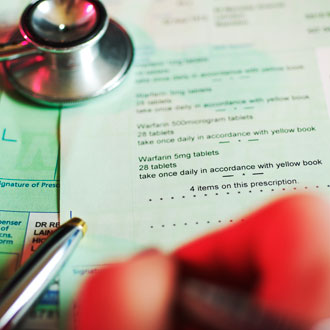NHS managers are expecting GPs in one area of England to slash their prescribing costs by 15%, under plans described by GP leaders as ‘very ambitious’.
The Suffolk and North East Essex sustainability and transformation plan (STP) aims to save £32.5m on primary care prescribing by 2020/21, amounting to a 15% cut.
The plan said this would be enabled by ‘a year-on-year medicines management saving based on product switches, improved prescribing and reduced item cost’ and ‘a clear focus on reducing variation in prescribing by supporting outlier practices’.
Dr Brian Balmer, chair of Essex LMC, said he has not seen any details on how the savings will be made but described the plan as ‘very ambitious’.
He added that Essex has a ‘long history’ of medicines management programmes, ‘so it’s not new, which is why the saving is likely to be even more difficult ahead’.
It comes as official data from NHS Digital, published this week, revealed that the cost of medicines dispensed in primary care has increased by just 4.6% in five years, compared to an 81.8% increase in hospitals over the same time.
The report also found that as a proportion of the overall NHS expenditure on medicines, medicines dispensed in primary care has fallen from 66.5% to 53.9% in five years.
But despite this, the Buckinghamshire, Oxfordshire and Berkshire West STP is also looking to cut back on prescribing with an ambition to save £15m (7%) from the £213m GP prescribing budget by 2020/21.
The plan said this amounted to ‘business as usual’ CCG savings but the GPC expressed concern that cuts at that level could not be made without denying patients access to vital drugs.
The area has a population of two million, which means savings of £7 per patient.
An NHS Oxfordshire CCG spokesperson said the region ‘sees opportunities to make significant savings’ by ‘focusing on the prevention of ill-health… and therefore reducing the need to prescribe’.
They added: ‘At this very early stage and before the plan has been formally approved and published, the fine detail is yet to be developed.’
But Dr Andrew Green, GPC prescribing lead, said that ‘GPs have cut their prescribing costs as much as they can’ over recent years, including switching branded drugs to generics.
He said: ‘In many areas CCGs are crossing the line between encouraging sensible cost-effectiveness and enticing GPs to break the regulations that govern their work.
‘I simply do not believe that cuts of 7% can be made without denying patients the medicines that they need.’
Dr Green added that: ‘Over the last five years the increase in primary care prescribing costs has been marginal when compared with those incurred from secondary care, even though much of the high-cost prescribing that we do is originating from hospital recommendations.
‘GPs have already done all they can to reduce prescribing costs, the proposed further reductions are simply unachievable if GPs are to continue to abide by the regulations which require them to prescribe the drugs that patients need.’
The Buckinghamshire, Oxfordshire and Berkshire West STP also commits to savings of £1m in ‘other primary care’ and £2m from community health services as part of an overall savings target of £384m by 2020/21.
The largest commissioning saving, of £45m, is to come from acute care. And it says £10m will be invested in general practice via GP Forward View funding streams, including for extending access.
What are STPs?
At the start of this year, NHS England tasked regional teams, CCGs, trusts and local authorities to write ‘sustainability and transformation’ plans outlining how the NHS Five Year Forward View would be put into action.
Pulse’s scrutiny of the 44 STPs have previously revealed how:
- GPs in one region of England may have to shoulder an increasing burden of patient care following the merger of two acute care trusts in Nottinghamshire;
- In Dorset, a plan for the sustainability of the local NHS suggests that a current 98 GP practices, operating at 135 sites, ‘will over-stretch’ local ‘workforce and finances’. It suggests that a ‘reduction in the number of sites’ would lead to a better provision of services ‘for more hours of the day and days of the week’;
- In Hampshire and Isle of Wight, a reduction in GP workload by almost a third is sought, while also significantly reducing patients’ face-to-face contact with primary care.
- In North London, practices with list sizes under 10,000 patients could face closure amid moves to create primary care ‘hubs’ with lists of 30,000.
- In East Devon, more than half of community hospital beds could be closed.
Pulse also revealed that GPs have been left largely in the dark throughout the first six months of the planning process but NHS England said it would not approve any plan that does not support general practice.

















